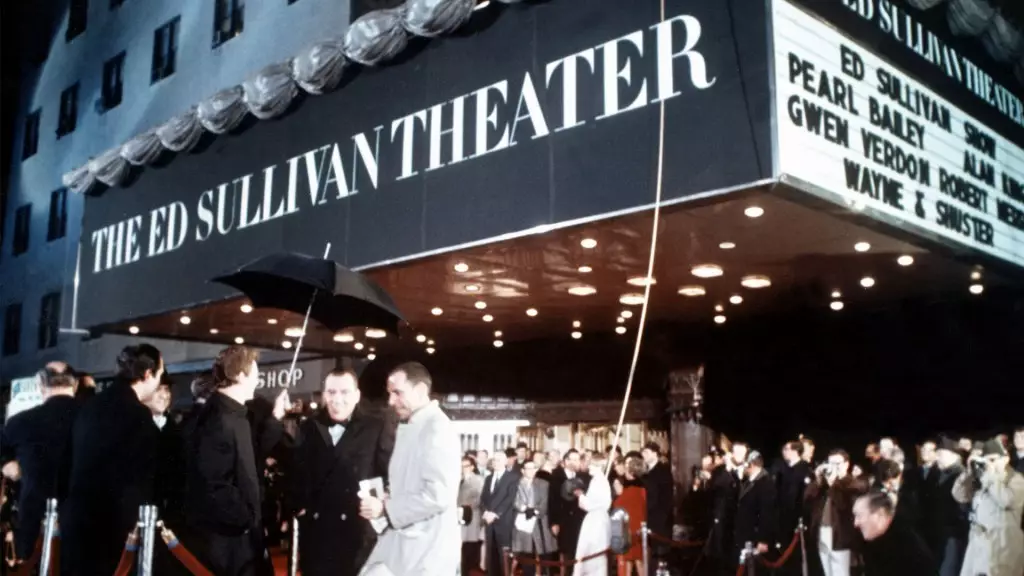Vince Calandra’s career is a testament to the often-unseen forces that shape cultural history. While stars like The Beatles, Mick Jagger, and Jim Morrison are forever etched into memory, it’s the vision and behind-the-scenes dedication of individuals like Calandra that truly set the stage for legendary moments. His journey from a humble mailroom assistant to a key architect of some of the most transformative broadcasts in American television exemplifies how perseverance and an eye for talent can carve out a lasting legacy. Recognizing his contribution prompts us to reconsider who truly influences the cultural zeitgeist—those who curate and orchestrate its moments, rather than just perform within them.
Revolutionizing American Pop Culture Through Television
Calandra’s role goes beyond merely booking acts; he was pivotal in shaping the American musical landscape during the explosive era of the British Invasion. The 1964 performance of The Beatles on The Ed Sullivan Show wasn’t just a musical event—it was a cultural phenomenon that would define a generation. The magnitude of the viewership, over 73 million people, underscores how television became a unifying force, and Calandra’s strategic booking of The Beatles was essential to this. He understood the power of television as a medium to influence societal trends, helping to introduce and normalize a revolutionary wave of music and youth culture. His fingerprints are indelibly stamped across a pivotal moment when TV, music, and cultural identity converged.
Negotiating with Rock Legends: A Lesson in Diplomacy and Courage
Perhaps most striking was Calandra’s role as a mediator and negotiator in managing rebellious rock icons like The Rolling Stones and The Doors. His interactions with Mick Jagger and Jim Morrison exemplify the delicate art of balancing artistic freedom with the constraints of network standards. The infamous Lyric controversies—Jagger’s “Let’s Spend the Night Together” and Morrison’s “Girl we couldn’t get much higher”—highlight the friction between the evolving rebellious spirit of rock and the censorship pressures of mainstream television. Calandra often had to deliver tough messages, acting as the voice of authority while understanding the artists’ perspectives. His diplomacy in these tense negotiations reflects a nuanced understanding of both the cultural significance of these acts and the responsibilities of television networks, ensuring that moments of rebellion remained within the boundaries of broadcast standards without completely suppressing their rebellious energy.
The Unsung Hero of Cultural Milestones
Calandra’s story illuminates how much of cultural history is crafted by those behind the scenes. His involvement in notable events—be it the Beatles’ iconic appearances, the Stones’ lyric edits, or the booking of legendary performers like Sinatra and Dylan—demonstrates how the backbone of entertainment hinges on meticulous planning and fearless negotiation. His later work booking guests for various talk shows reflects a versatile talent capable of adapting to changing times and tastes. Yet, despite his profound influence, his contributions often go unrecognized in mainstream narratives curated for their stars, not their strategists. Recognizing Calandra forces a reevaluation of the cultural icons we admire; it acknowledges that their luminescence is bolstered by the unwavering effort of professionals who craft their platform.
Reflections on the Power of Media Gatekeeping
Vince Calandra’s career also prompts a critical reflection on the influence of media gatekeeping and censorship. His negotiations with controversial lyrics remind us how media authorities act as arbiters of social acceptability, shaping public discourse often behind closed doors. His willingness to confront and manage these tensions illustrates the complex dance between artistic expression and corporate interests. Today’s digital age, with its reduced gatekeeping, continues to challenge this dynamic, but Calandra’s experiences highlight the importance of responsible curation—balancing cultural relevance with societal standards. His legacy urges future media professionals to consider their roles not just as gatekeepers, but as custodians of cultural integrity.
The story of Vince Calandra is not just about a man who booked acts or negotiated lyrics; it’s a narrative about the profound impact of strategic vision, diplomacy, and behind-the-scenes brilliance on shaping cultural history. His fingerprints are embedded in moments that transcended entertainment to become collective memories, and his work underscores the importance of recognizing the architects behind the icons we cherish.
